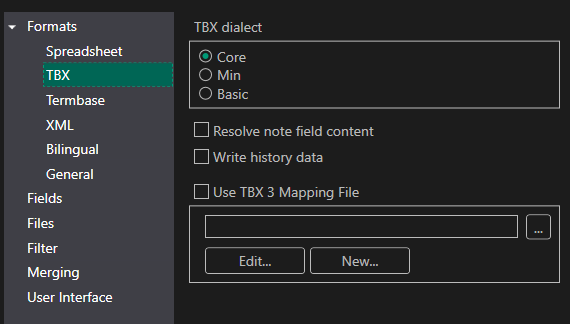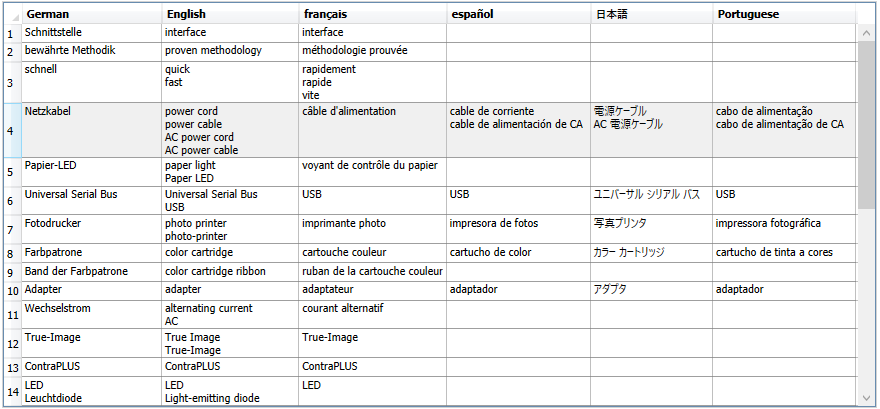I want to export or convert a MultiTerm termbase into a TBXv2 TBX-Basic file so that I can import it into Lingo.
As far as I can see, MultiTerm doesn't offer TBX-Basic export as one of the export types on the database admin page. I see TBX 2002 export, which I means TBXv2 but in the standard or default dialect, not the basic dialect. Lingo seems to confirm this, because when I try to import the TBX file into Lingo it displays the error message "Not a TBX Basic file. Lingo currently only supports TBX Basic."
Am I correct in that conclusion or is there a TBXv2 TBX-Basic export type that I somehow haven't seen? I've only just started using MultiTerm, so it's quite possible that I've missed something.
If MultiTerm doesn't offer TBX-Basic export out of the box, is there a plug-in available to extend it and give it this capability?
Failing that, are there any other apps or utilities to convert the MultiTerm termbase into TBXv2 TBX-Basic? The only one I've come across so far is Glossary Converter. This claims to support TBX-Basic but I can't get that to work. There's a file format radio button for TBX dialect with the three options of Core, Min, and Basic as I'd expect, but switching between these doesn't seem to make any difference to the output file. No matter which of the three dialects I choose, the .tbx file contents are identical. Is there anyone on here who has more experience using Glossary Converter and who could suggest what I might be doing wrong?
Any suggestions welcome!
Regards,
Bruce Officer


 Translate
Translate





